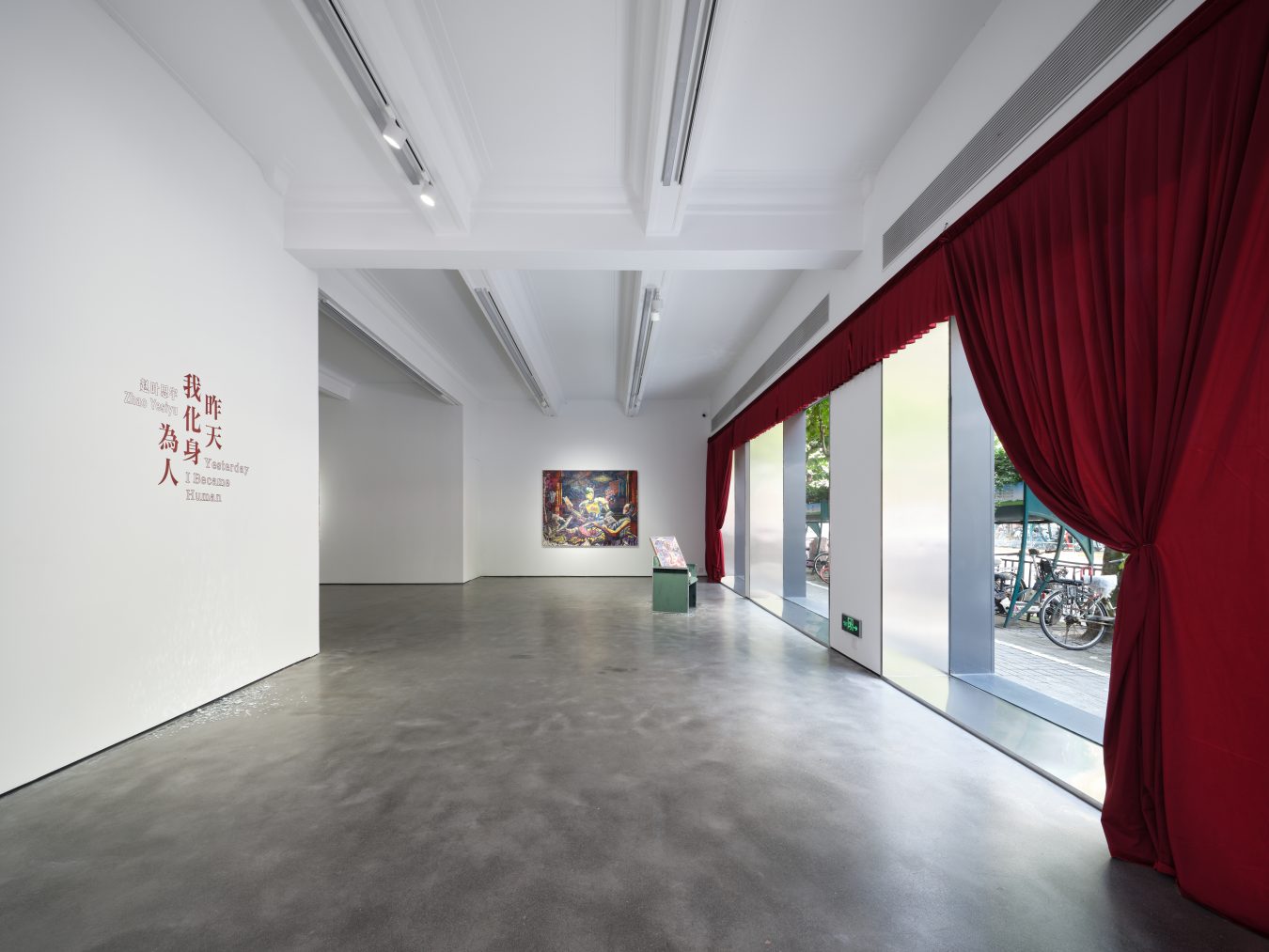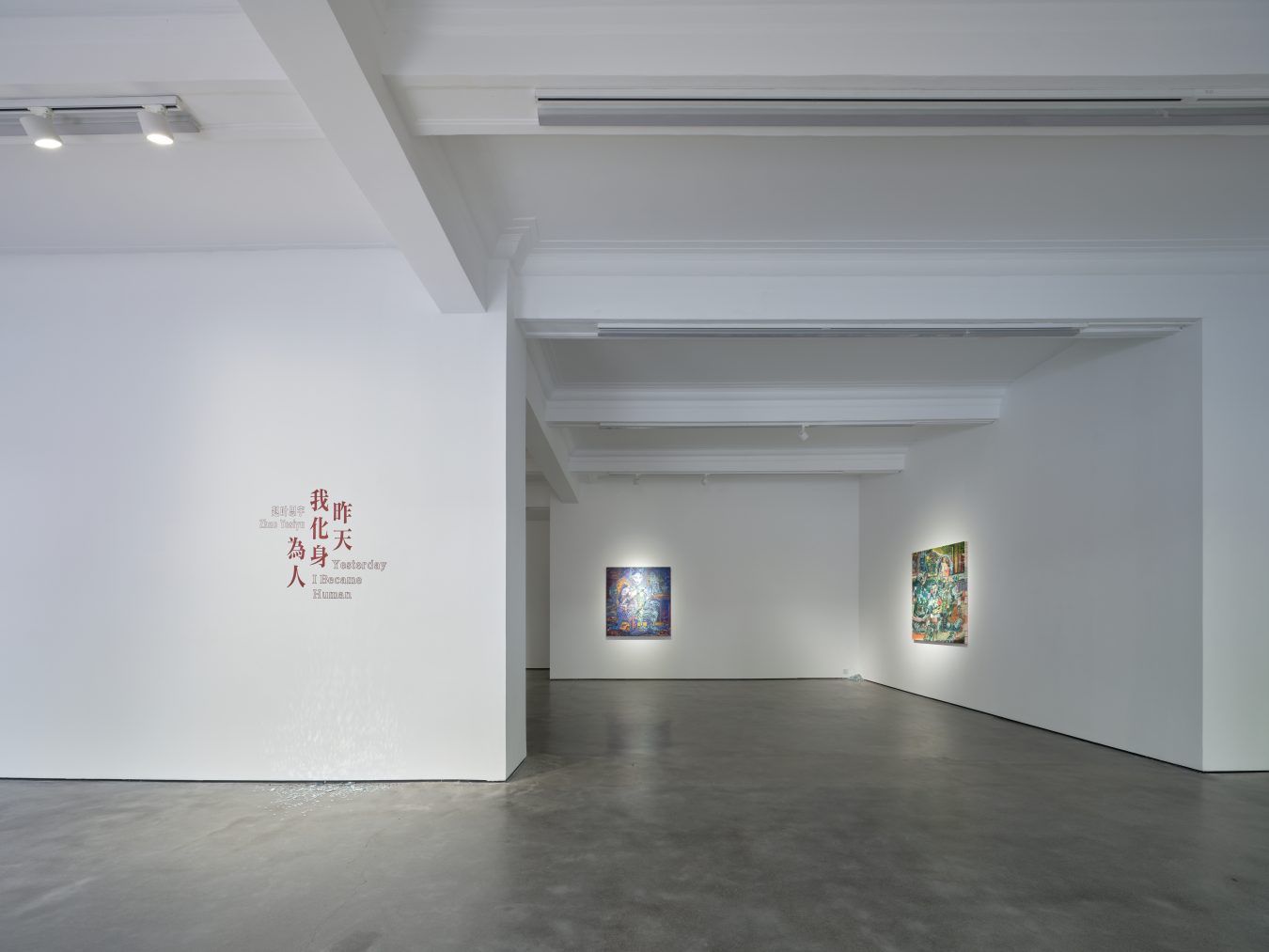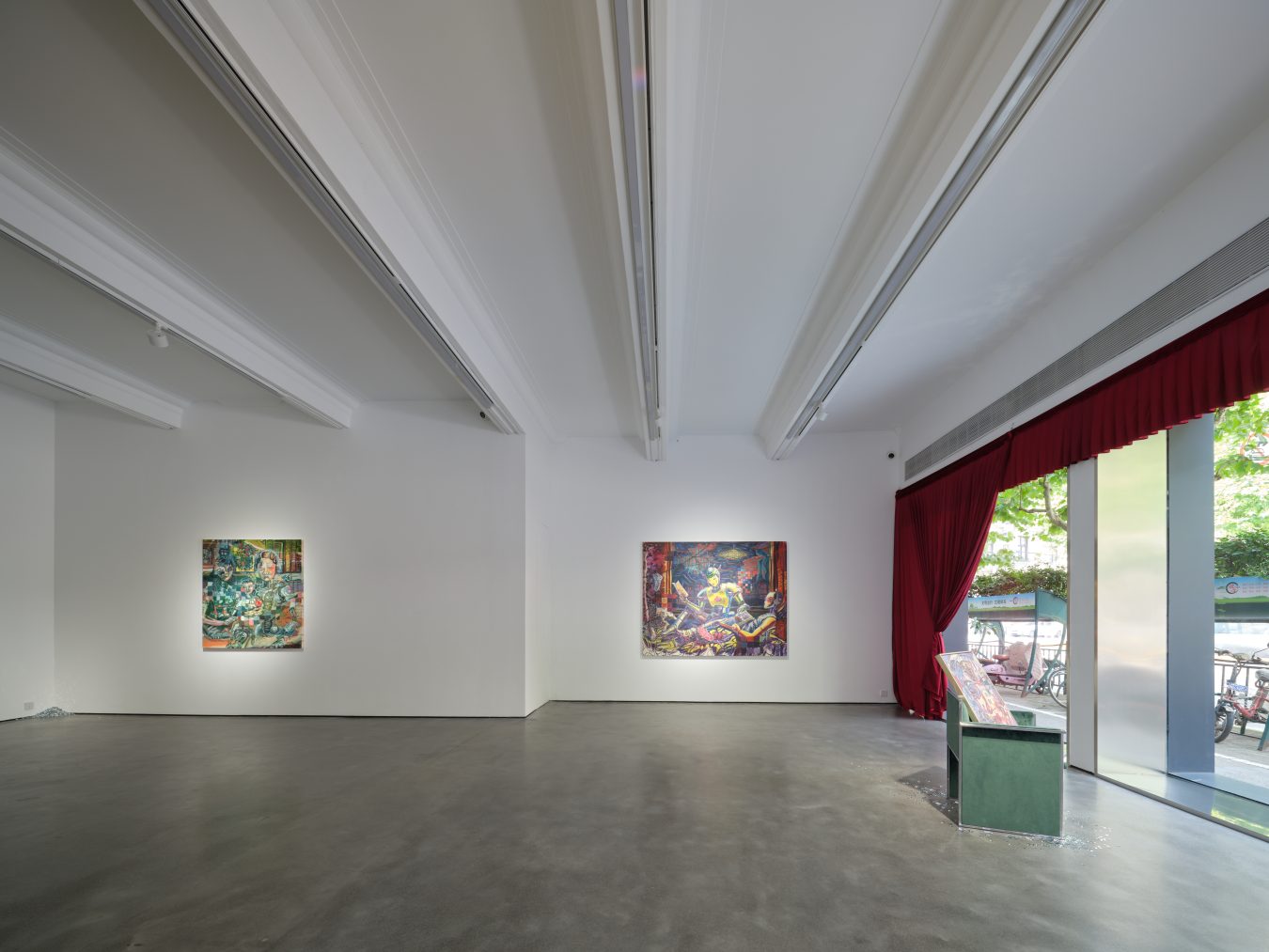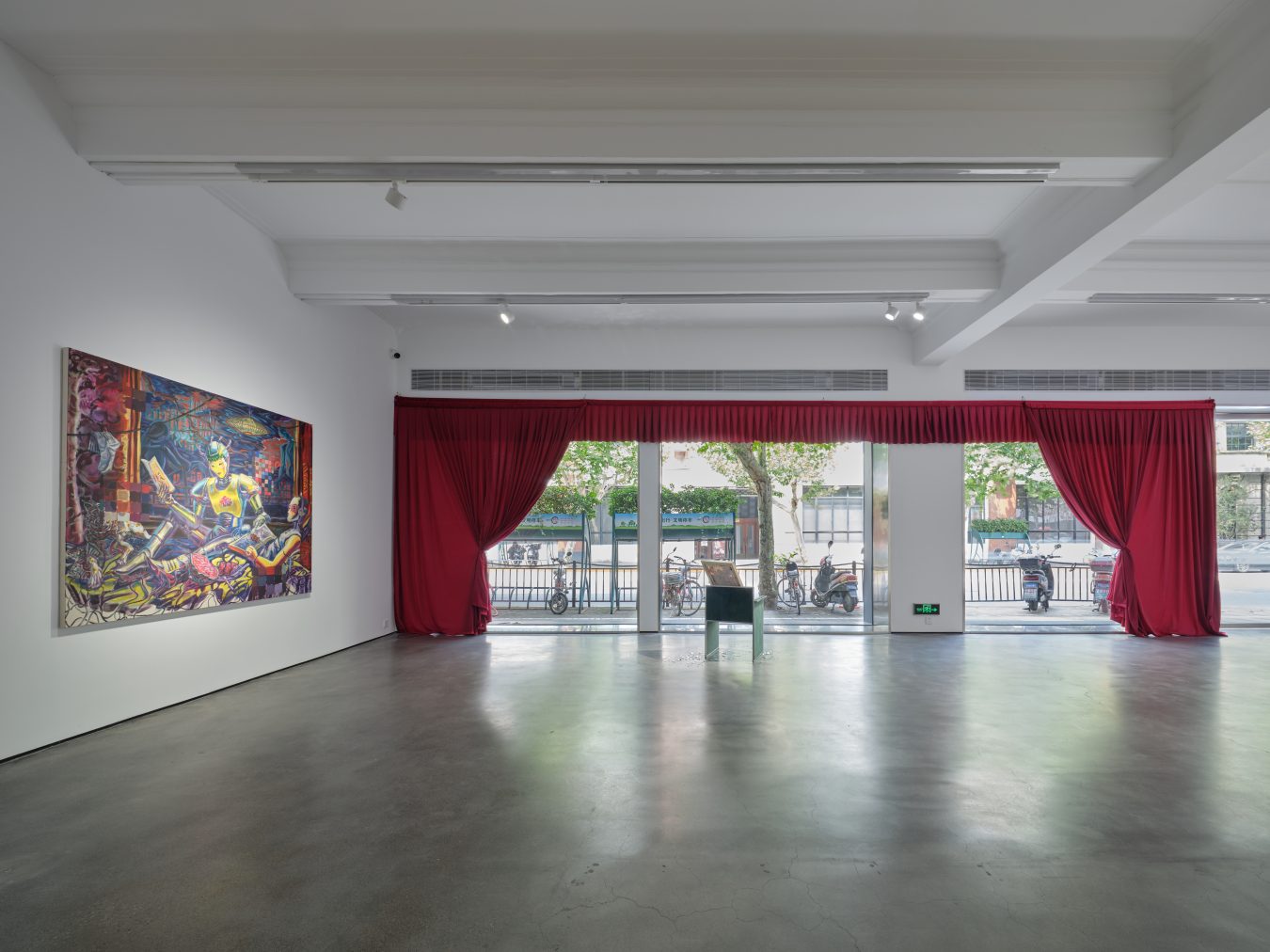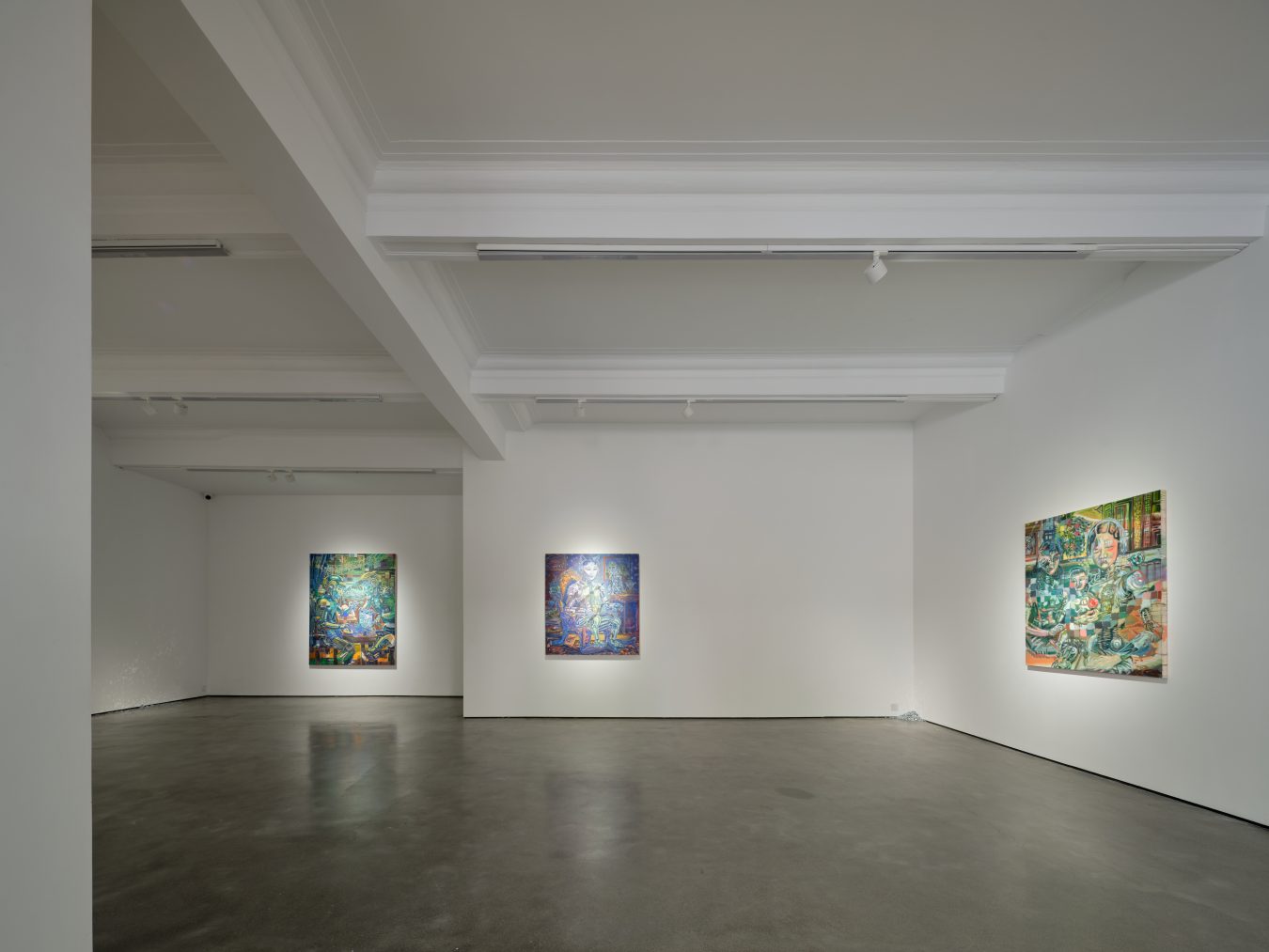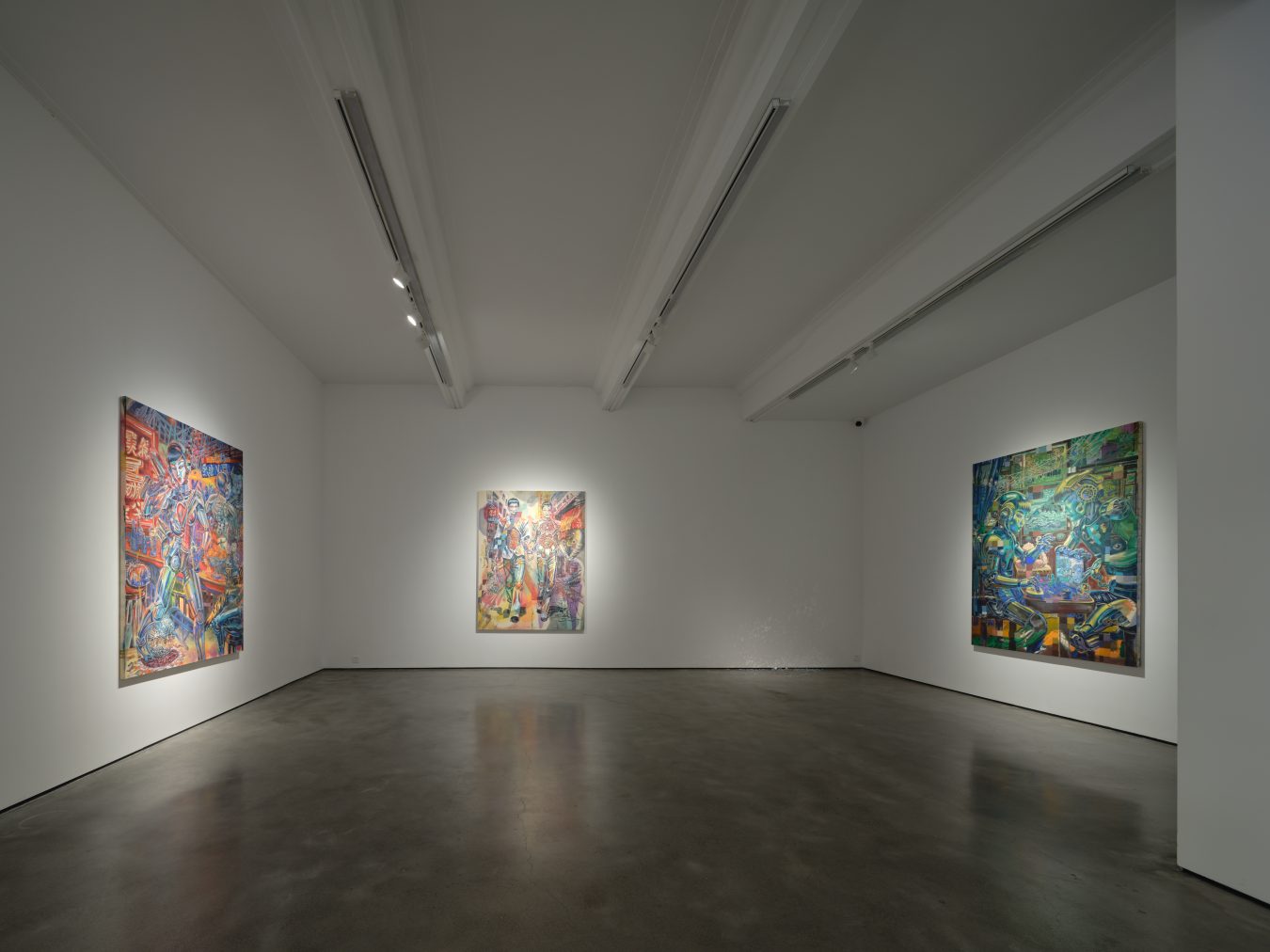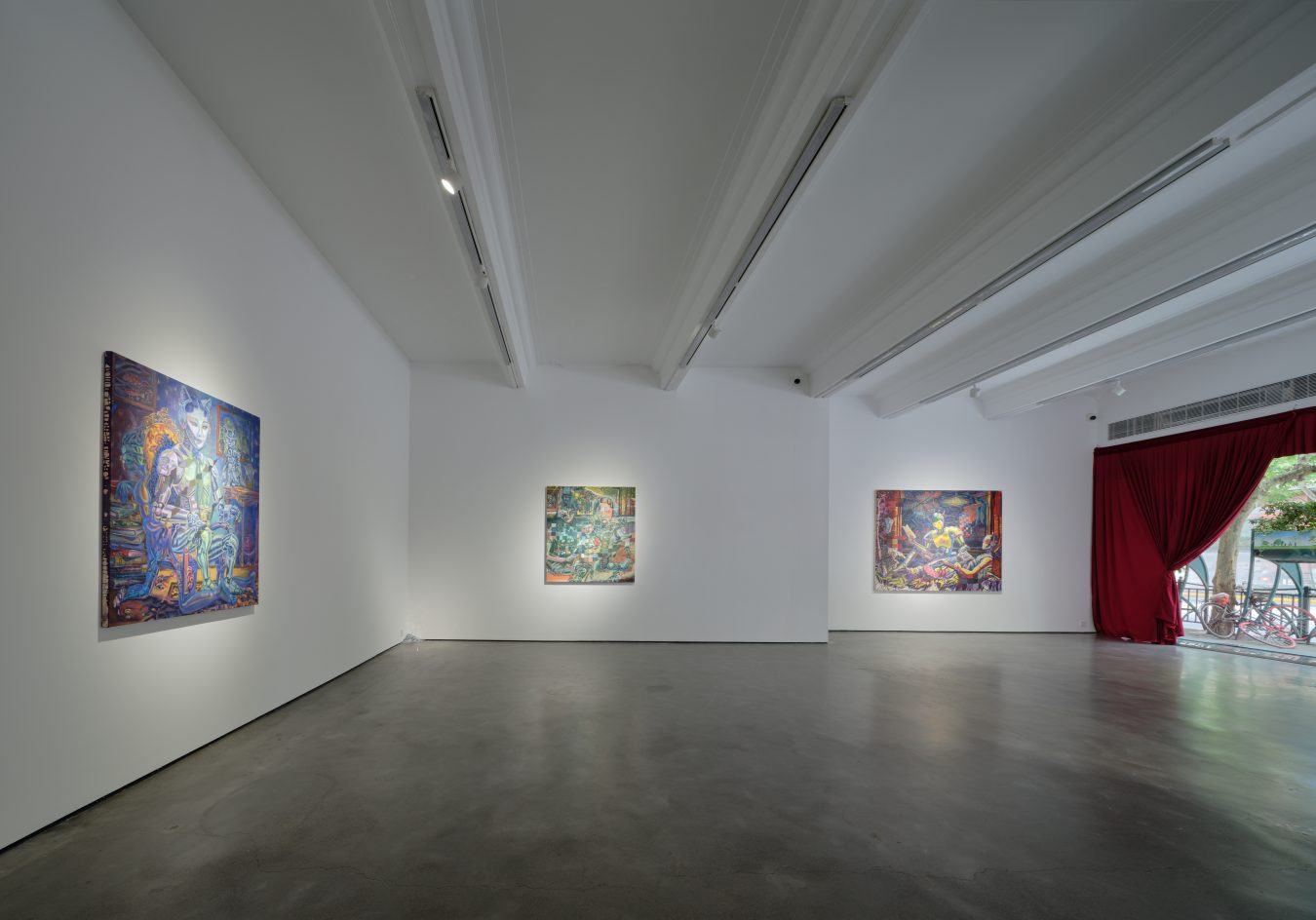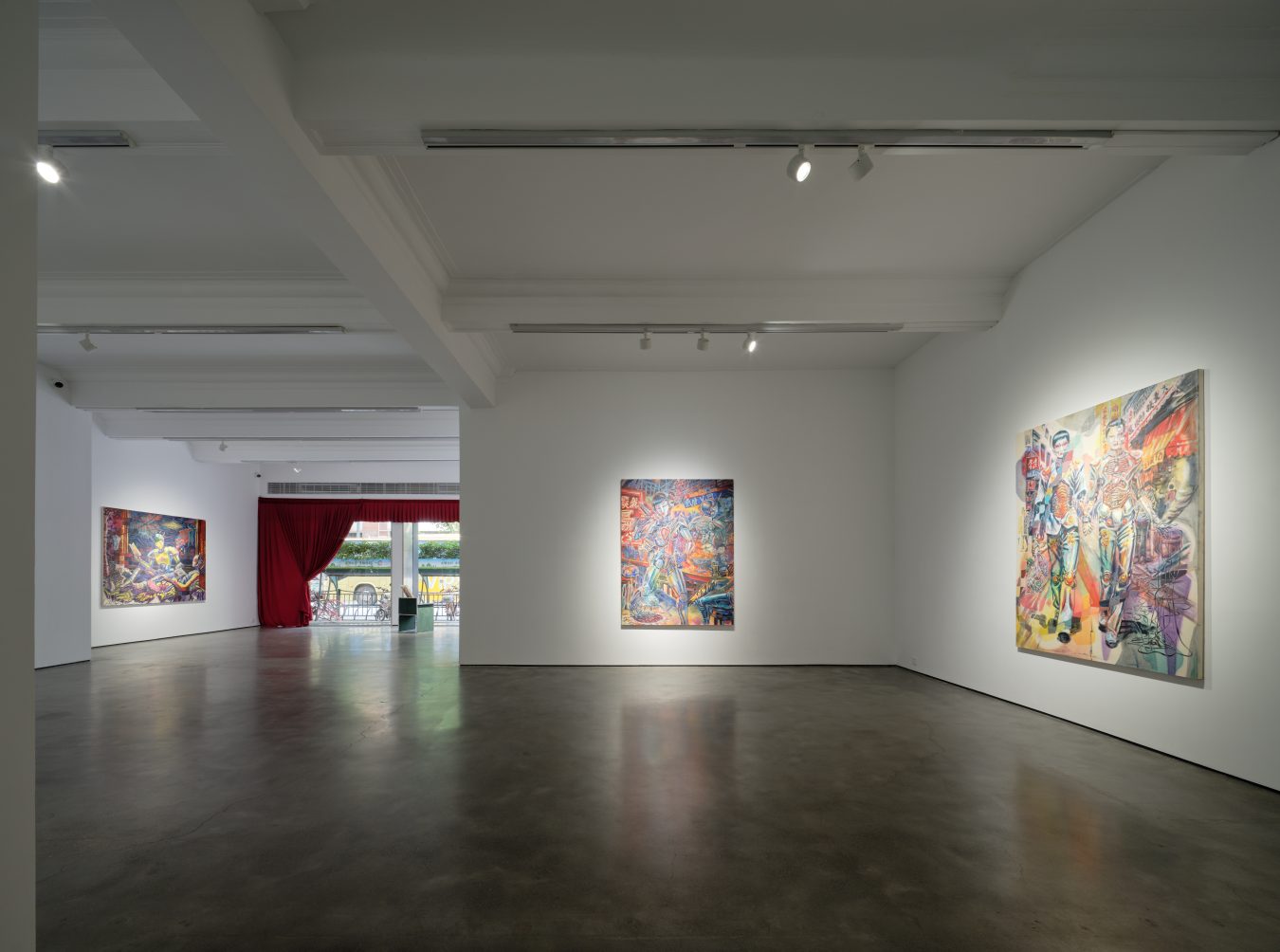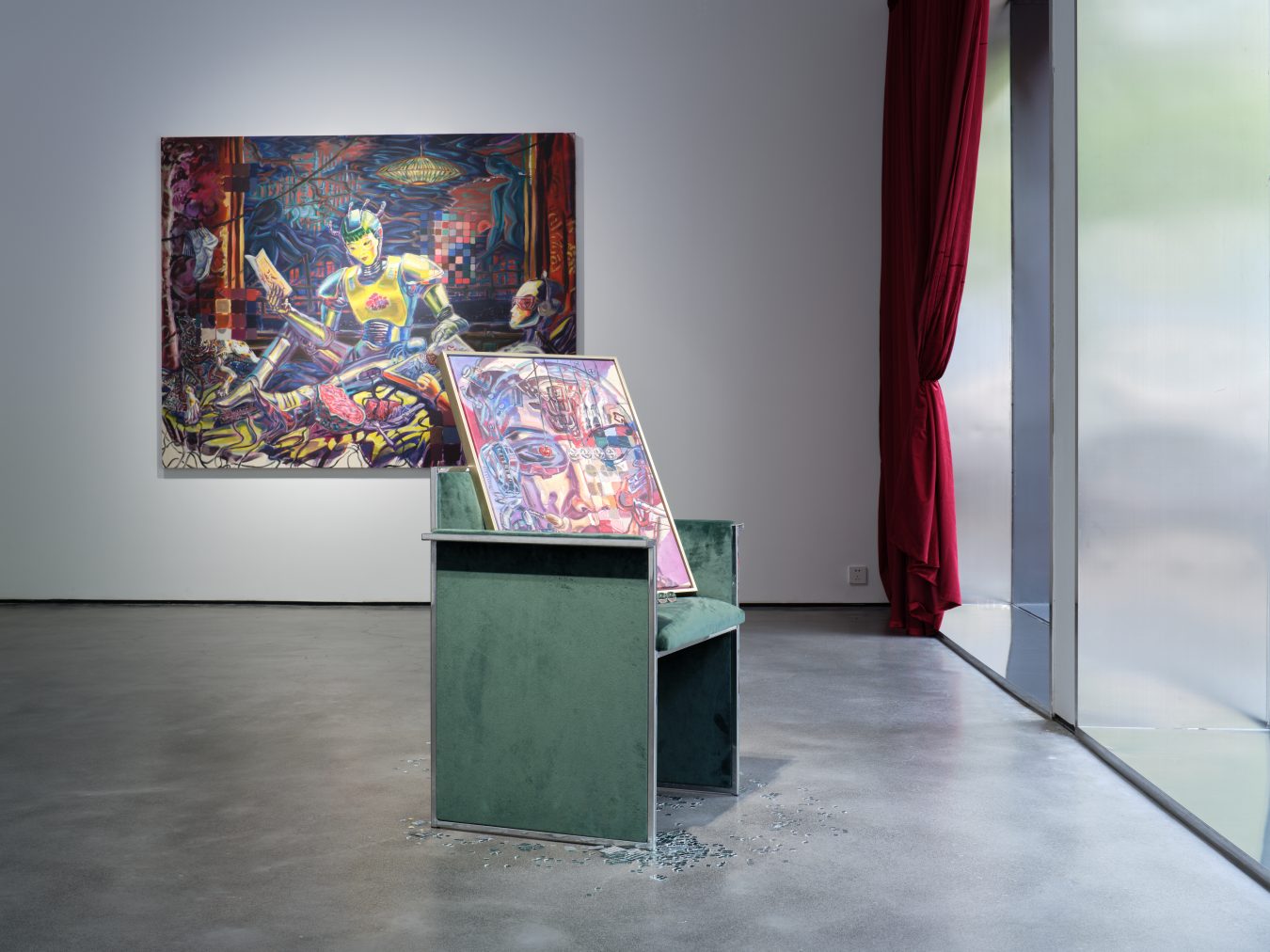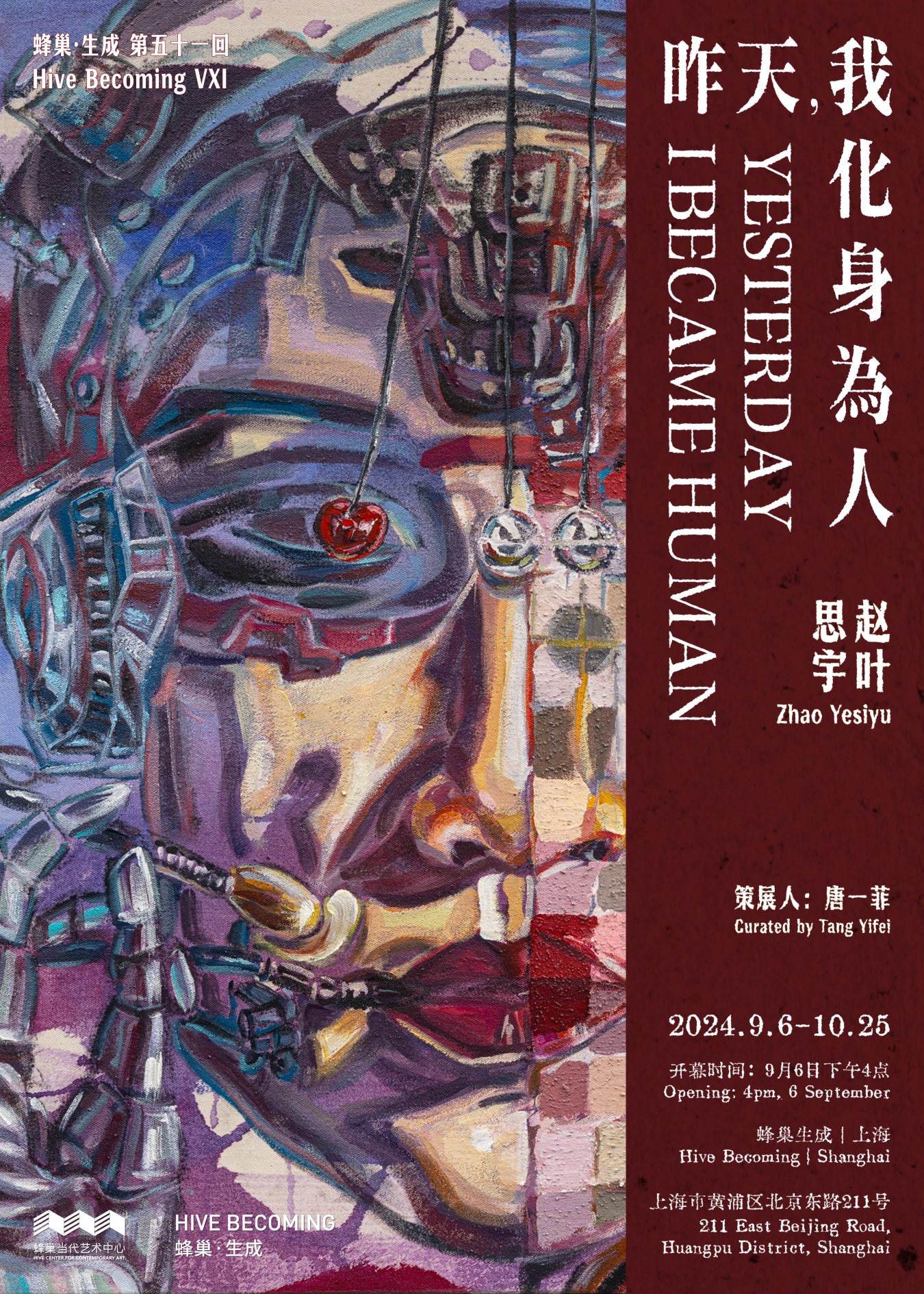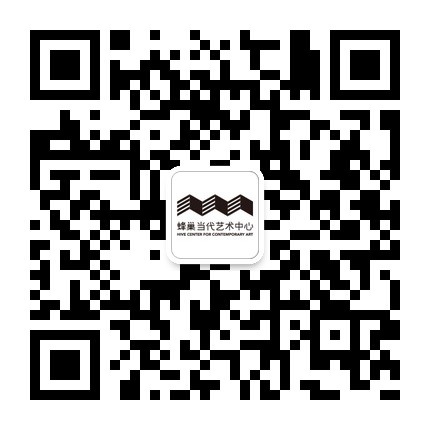Yesterday, I Became Human
Hive Center for Contemporary Art is delighted to present artist Zhao Yesiyu’s first solo exhibition in Asia, ‘Yesterday, I Became Human,’ at the Hive Becoming space in Shanghai from 6 September to 25 October 2024. Curated by Tang Yifei, this exhibition highlights the artist’s latest explorations in painting.
Zhao Yesiyu’s paintings often create mystical characters and worlds by combining diverse symbolism and imagery, offering insight into complex social structures and challenging societal norms. The artist dissolves different levels of intersectional discrimination in their practice, incorporating traditional Chinese cultural influences and Western narratives to create a unique world exploring self-consciousness, identity, and power dynamics. For their latest explorations, Yesiyu continues with this unique aberrant aesthetic, introduces a more satirical post-human allegory that decontextualises and reconstructs the world with autobiographical elements and fictionalises a version of the existential narrative that is somewhat distanced from themselves and even humanity, to examine the human society in a detached, yet more intimate manner.
This show, ‘Yesterday, I Became Human,’ focuses on Yesiyu’s latest paintings, which construct a life between the cyber and the human from a first-person perspective, portraying probable post-hypnotic flashbacks. This is about the individual’s imagination of self, of collective and society, and the aspiration that attempts to establish a contemporary shared world. The works suspend time and disrupt space, combining steel and flesh on an abstract landscape with vibrant digital pixels. They embrace a nostalgic palette of illustrated magazines and art historical references, while simultaneously signalling the ambiguity of modern technology. Contemporary civilisation and ethics are also simulated and diluted in this narrative, where street signs and texts of the settings are transformed into indecipherable fictional languages; bodies and lives become products of complicity with technology, while familial and social relationships are consequently altered. With these radical critiques concealed in their works, Yesiyu attempts to initiate the periphery of the accepted system with a sensible projection of the individual, proposing a more diverse crowd of people and worlds beyond the central apparatus that has already been or is trying to be established.
The hybrid state of humans and cyborgs represents an empowering evolution of self-consciousness, where humanity manages to fortify its armours and weaknesses: a concern of East Asian cultural paradigm and the magical reality, in which decay and emergence coexist in false prosperity. They dissolve biological boundaries and engage in a more profound, expansive, and grounded integration so that the definition of ‘human’ is interrogated and challenged in a mirrored reality, in an attempt to reconcile fragmented traumas and psychological disaffection and to reassemble the consciousness of society. In Yesiyu’s Mastermind, the human-cyborg ‘I’ of the past and future confront, while the self and other, body and mind, reality and representation, masculinity and femininity, whole and part become ambiguous and dialectic. The independence of personality incarnates the quest for the position of ‘I’ and ‘we’ in society, involving constantly embracing and breaking free from self-alienation.
Here, I borrow Mary Shelley’s introduction remark in Frankenstein:¹
“Did I request thee, Maker, from my clay
To mould me man, did I solicit thee
From darkness to promote me?”²
¹ Frankenstein is a science fiction by English author Mary Shelley. First published in 1818, it is considered the world’s first science fiction. The book recounts the birth of the monster created by Frankenstein the scientist and the monster’s traumatic life experiences after the birth.
² From John Milton’s Paradise Lost, as told by Adam, banished by God from the Garden of Eden.
